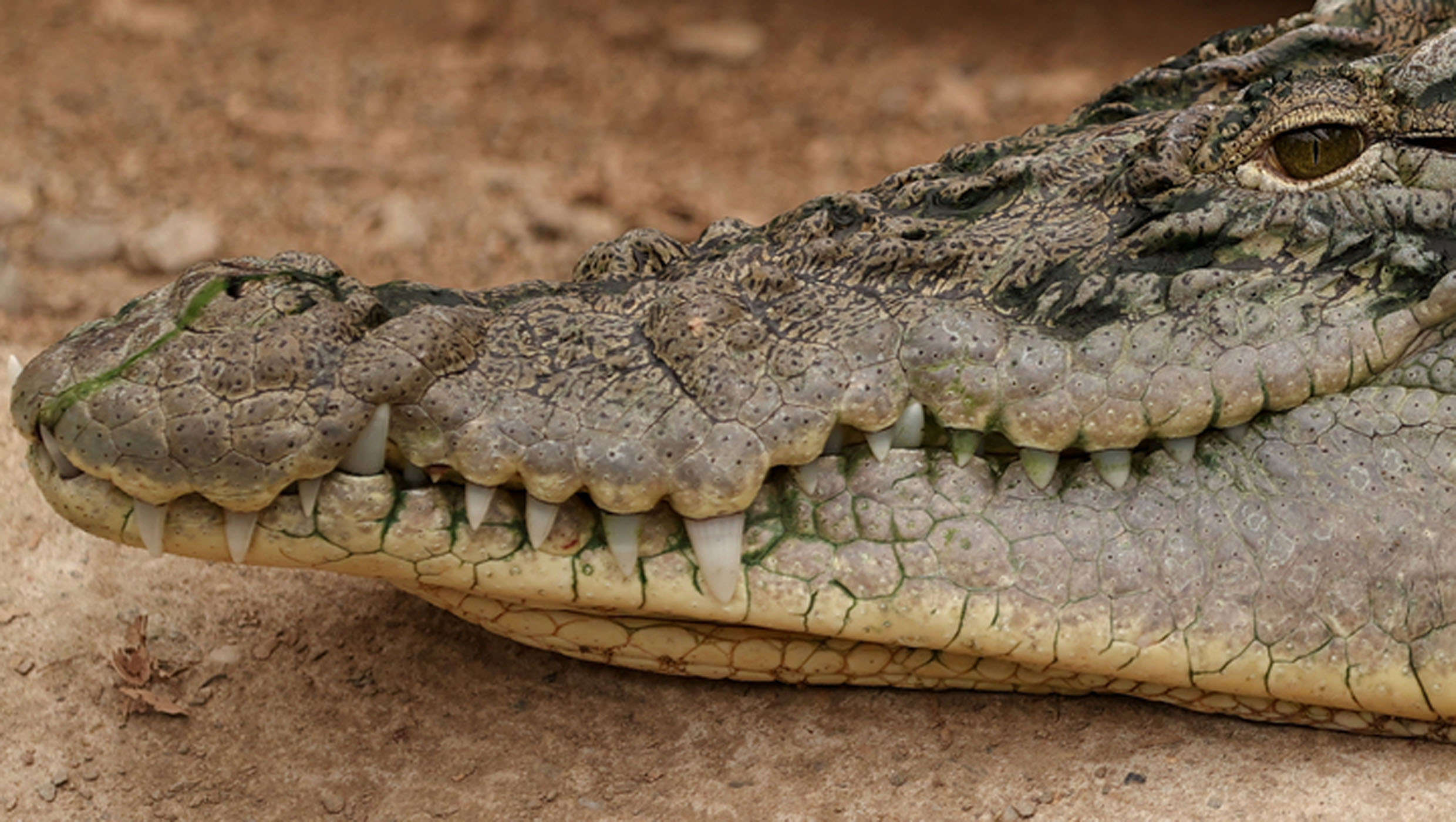Create a free profile to get unlimited access to exclusive videos, sweepstakes, and more!
We don’t need a real Jurassic Park, because crocodiles haven't really changed since dinosaurs were around

If you’ve ever wanted to see something that roamed Earth next to the dinosaurs, but alive rather than fossilized, just go to your nearest zoo’s crocodile exhibit. They haven’t really changed much in 247 million years.
Bringing T. Rex back isn’t necessary for anyone who wants to know what it’s like to stand next to something that was alive during the Jurassic and Cretaceous. Crocodiles have stayed mostly the same since then. New research has found out why they have undergone so little change for millions upon millions of years, unlike many other animals that diversified into thousands of species. Turns out crocs had a weird evolutionary pattern controlled by the environment, and they happened to be equipped to survive just about anything, even the dino-pocalypse.
That explains what we’re seeing now is pretty much what was crawling around way back.
There are only 25 species of crocodiles around today—not because humans killed them off (for once) but because additional prehistoric species that were more specialized and eventually went extinct when there was change in their surroundings. Once, vegan crocodiles were actually a thing. There were also crocodilian sea monsters that slithered through perilous waters, and crocs that rivaled dinosaurs in size and even ate them. Descendants of dinosaurs went a different route. In the same amount of time it took for crocodiles to get to where they are today, thousands of species of birds and lizards have evolved. When it came to evolution, crocodiles obviously took their time.
“We don’t know exactly why the less familiar ancient crocodile species became extinct. Personally, my opinion is that these species became too specialised in their respective environments, such that when the environment changed they were not able to adapt to it,” Max Stockdale, who coauthored a study recently published in Communications Biology, told SYFY WIRE.
Stockdale looked back into the evolutionary history of crocodiles with an AI algorithm that gave estimates of evolution rates. He also found that prehistoric crocs tended to evolve more quickly in warmer environments, further proving that the environment had a significant effect on crocodile evolution. This probably explains why they not only survived that killer asteroid but evolved faster in its wake. After the impact, there was a period during which greenhouse gases were trapped in the atmosphere, and the drastic rise in temperature became lethal to anything that couldn’t handle it. Crocodiles are exotherms that rely on outside heat to stay warm. If you ask Stockdale, more than just that kept them going.
"The crocodile body plan is versatile for a few reasons. Perhaps most importantly, is that they do not generate their own body heat, instead warming their bodies by basking in the sun," he said. "This means that they don’t need to eat nearly as frequently as a mammal or a bird. Crocodiles are generally not fussy eaters, and will eat fish, live animals and carrion. They are also able to survive horrifying injuries that would kill a mammal."
What was especially important in determining crocodiles’ rate of evolution was body size, because it is related to how much food an animal needs, how fast it is capable of growing, how much its population could potentially grow and the chance of extinction in its future. Because of heat and a versatile body plan that has gone mostly unchanged for hundreds of millions of years, crocs survived. The fact that their body plan worked for them in many different situations also meant there there wasn’t much adjustment necessary, which explains why relatively few species existed back then (at least if you compare them to dinosaurs) and so few exist today.
"Crocodiles are able to survive in a huge variety of environments, including rivers, swamps, estuaries and even the open ocean," Stockdale said. "Lizard species seem to be more prescriptive, with each species specializing in a given ecological niche. Therefore, a larger number of lizard species has emerged, and they evolve to quickly specialise in each ecological role that is available to them."
Because the climate was warmer back in the Jurassic and Cretaceous, they also tended to grow larger and probably more terrifying. Whether crocodiles are actual living fossils remains murky as the swamps they stalk their prey in. It depends on your definition of “living fossil”. If you go by the definition of “Lazarus taxon”, which goes for a species like the coelacanth, which is still extant despite going missing from the fossil record for long periods of time, crocodiles don’t really fit. Bradytely might be a better alternative. This is also known as “arrested evolution”, with change that either freezes for extended stretches or occurs very slowly. Stockdale doesn't agree with this classification either, because extant species show average rates of evolution.
"Crocodile evolution isn’t necessarily slow all the time–they could evolve rapidly when the need arose," he said. "It’s more that they didn’t evolve because they didn’t need to."
Crocodiles were obviously built to last, which could explain why they survived the asteroid impact that obliterated the dinosaurs. Unlike their enormous reptilian relatives, the would have been just fine if they had to go without eating for months, and since they could eat just about anything living or scavenge, they had less of a problem finding food. Being much smaller than dinosaurs also meant less food was needed when they finally did get hungry.
"When the asteorid hit, and food chains became broken, the dinosaurs' high-energy lifestyle was not sustainable," Stockdale said. "But the crocodile's was."
Obviously, these creatures have been around. So save yourself a potential T. Rex attack at Dr. Hammond's dino resurrection playland and just watch a croc documentary instead.


























